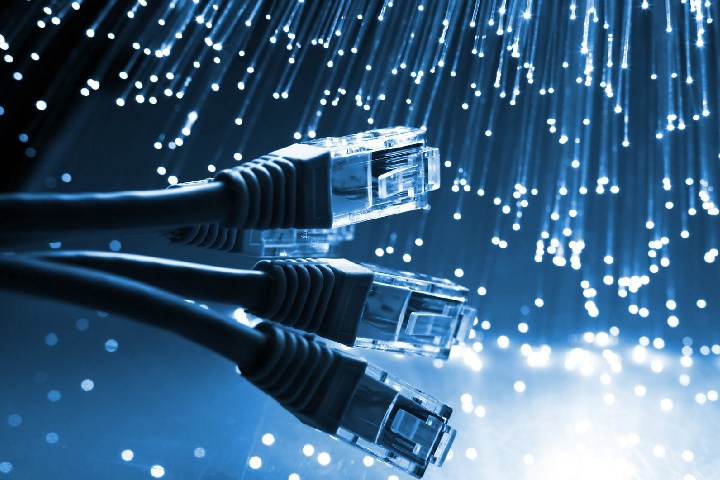Internet
Comprehensive Guide to Gigabit Speeds
In this article, we will explain gigabit speeds for your home and business. We will answer all the questions relevant to these speeds and the gigabit internet plans in the US.

We are living in the age of the internet. Networking technology is progressing by leaps and bound. There are different avenues of internet technology. Back in the day, we were confined to dial-up connections. The introduction of this technology was the benchmark for other networking technologies to follow. With the introduction of cable and fiber internet, things started to evolve.
The cable internet uses a network of coaxial cables spread throughout the nation. For example, Spectrum is a popular cable provider with services in 42 states. Spectrum TV and Spectrum internet are known for extensive features, no contracts, and a 30-day money-back guarantee.
Fiber internet is relatively new and uses glass-based fiber optics instead of copper wires. The result is blazing-fast internet speed and exceptional connectivity. However, the only problem is accessibility. Fiber internet is available in few areas because of the high infrastructure cost associated.
In this article, we will explain gigabit speeds for your home and business. We will answer all the questions relevant to these speeds and the gigabit internet plans in the US.
Table of Contents
1. What are Gigabit Speeds?
The internet speeds are measured in Megabits per second. Higher internet speeds translate to better connectivity and performance overall. These speeds open new avenues for your usage at home. We are living in the age of cord-cutting, where more and more people are switching to streaming. As the streaming services push for 4K and higher resolution, we need internet speeds to support such high streaming needs.
Gigabit speeds refer to download rates close to 1000 Mbps. The upload speeds are always lower than the download speed. Gigabit internet speeds are only for downloading. The uploading speeds are close to 100 Mbps for such rates. An average user spends more time downloading than uploading. Therefore, upload speeds are generally lower.

2. Why does Gigabit Internet never reach Gigabit speeds?
There are many reasons why you are not reaching the Gigabit speeds. One of the primary reasons is the quality of the wired connection. We already know that wired connections or Ethernet cables are better for such rates as they are more reliable and faceless interference. If you want the maximum speeds, you must have the right wired connections. Therefore, it is essential to sort everything out from the wires going through your modem to your router.
The second being the Wi-Fi standard your device supports. The most advanced Wi-Fi standard is 802/11ax, and it is relabeled as Wi-Fi 6. This new technology improves the overall performance of your Wi-Fi, has better device pairing capabilities, offers better security, and supports new compression technologies.
The only catch is that your device must support this latest networking technology. Luckily, all the new devices coming into the market support this technology, but your old devices will have trouble getting the desired speeds.
Another reason you might not get the gigabit speed is because of your outdated routers. If you don’t feel like buying a new router, ensure that your old router supports at least 802.11ac to support these speeds.
Lastly, many routers support dual-band, which means they have 2.4 GHz and 5 GHz bands. The 5GHz band does not have the same range as 2.4 GHz, but you will experience less noise and better connectivity overall. Therefore, you need to ensure that your router is dual-band to support the gigabit speeds.
3. Internet Provider with Gigabit Speed
Here are some of the providers that have gigabit-speed:
a. Spectrum Internet
Spectrum internet can get you up to 1000 Mbps that is close to the benchmark. There are no extra charges for the modem. However, you will need a router. Either it is readily available with the help of Spectrum, or you can purchase your router. Secondly, there is no limit to how much data you can use in a month. There are no fixed data caps.
All Spectrum plans are without any contract, which means you can cancel anytime without having to pay a service termination fee. The standalone internet service with Spectrum costs $109.99/month for 12 months. After one year, the prices will get higher. The internet includes a free security suite to protect your devices from malware and viruses.
-

 Instagram4 years ago
Instagram4 years agoBuy IG likes and buy organic Instagram followers: where to buy them and how?
-

 Instagram4 years ago
Instagram4 years ago100% Genuine Instagram Followers & Likes with Guaranteed Tool
-

 Business5 years ago
Business5 years ago7 Must Have Digital Marketing Tools For Your Small Businesses
-

 Instagram4 years ago
Instagram4 years agoInstagram Followers And Likes – Online Social Media Platform















